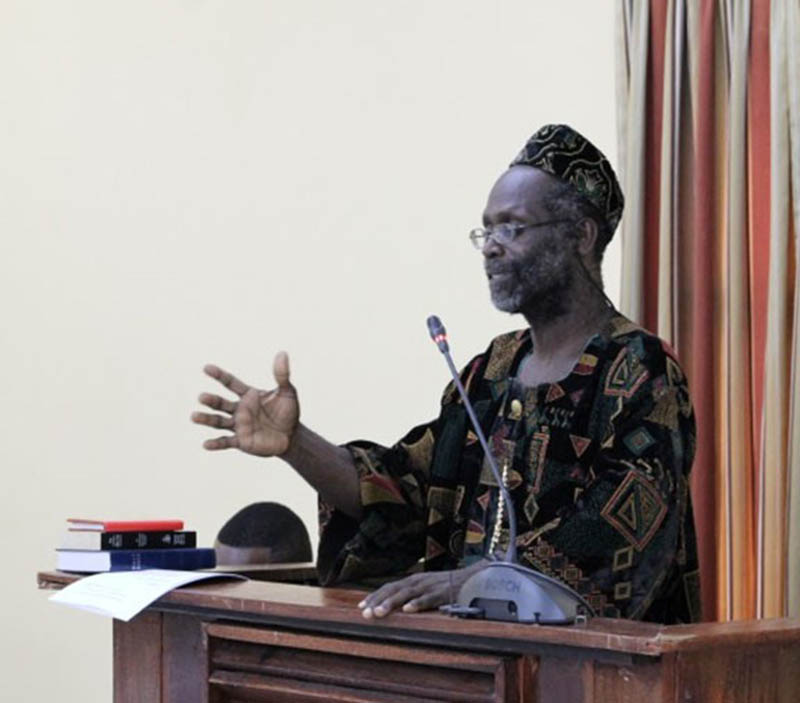Working People’s Alliance (WPA) activist, Tacuma Ogunseye was yesterday interviewed by the police about controversial statements he made at a March 9th public meeting at Buxton and remains in custody.
His attorney, Nigel Hughes, in an update posted on his Facebook page yesterday said that Ogunseye was interviewed late yesterday afternoon by a Sergeant of police at CID HQ Vlissengen Road.
He was told that he was a suspect in relation to the offence of attempting to incite racial hostility.
Hughes stated that Ogunseye at the commencement of the interview told the interviewer that he was a member of the executive of the WPA and the WPA has been in politics for over forty years during which time it had always adhered to the parameters for public meetings.
Hughes said that Ogunseye also informed the interviewer that he would have nothing to say during the course of the interview.
The officer then played the recording of 9th March 2023 and Ogunseye remained silent throughout the questioning by the Officer.
At the conclusion of the interview, upon enquiries whether it was necessary to detain Ogunseye during the rest of the course of the investigation, Hughes said that the officer indicated that he would have to seek instructions from “higher up”. Ogunseye was taken to the Brickdam Police Station around 6.30 PM.
Ogunseye turned himself in to the police on Friday after a wanted bulletin was issued for him on Thursday.
His March 9th remarks have prompted strong criticism from the government and other parts of society.
Among other things, Ogunseye said “…In 2002, 2005, … Buxton got … into an unfortunate situation which arose because of the PPP policy of executing Africans using the police force and then the phantom force and Buxton find itself in the cross road.”
He went on to contend that the treatment that persons of African descent receive in this country is unjust and called it a “political urgency” which he declared must be acted upon as early as possible.
The WPA executive member said he was of the belief that once persons from the Joint Services who are of his ethnic group are guided to do “the right thing,” then there is a possibility of his party getting back into government. “…Sometimes people tell me that to remove the PPP will be hard and long but I don’t necessarily believe… because at the end of the day no government could survive if they don’t have the support of the military and those who carry weapons for the state… the reality is, the army, the police, are majority African Guyanese… once we organise our people and once we begin to fight we will ensure that our brothers and sisters in uniform will do the right thing and when they do the right thing this matter is over in days and not weeks… it have to be strategic.”





